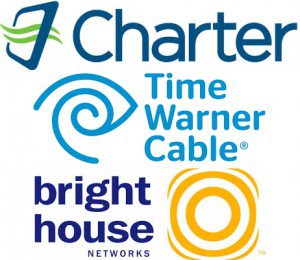
Malone
The cable magnate Sen. Albert Gore, Jr., (D-Tenn.) once called the Darth Vader of the cable industry is under enhanced scrutiny by federal regulators reviewing the Charter Communications-Time Warner Cable merger deal.
Dr. John Malone holds a 26 percent ownership in Charter, making him the largest shareholder by far, seconded by Warren Buffett, who holds less than an eight percent stake in the cable operator.
Many cable subscribers over 40 have done business before with a Malone-held cable firm, most likely Tele-Communications, Inc. (TCI), which operated from the 1970s until Malone sold it to AT&T in 1999 for close to $60 billion. In turn, AT&T sold the majority of its cable holdings to Comcast just a few years later.
Malone’s reputation for hiking rates and controlling the programming running on his cable systems is legendary. At one point, TCI held an ownership interest in most major cable networks carried on its cable systems. Cable networks that failed to secure carriage agreements with TCI were at a substantial disadvantage because TCI at its height was the nation’s largest cable provider.
 Since Malone sold TCI, the multi-billionaire has built a significant cable empire in Europe and is today the largest private landowner in the United States. In the U.S., he is best known as the current owner of SiriusXM satellite radio. The two satellite companies merged with an agreement not to raise rates for a few years. As soon as that agreement expired, Malone’s combined Sirius/XM operation began a series of rate hikes and maintain a satellite radio monopoly in the U.S.
Since Malone sold TCI, the multi-billionaire has built a significant cable empire in Europe and is today the largest private landowner in the United States. In the U.S., he is best known as the current owner of SiriusXM satellite radio. The two satellite companies merged with an agreement not to raise rates for a few years. As soon as that agreement expired, Malone’s combined Sirius/XM operation began a series of rate hikes and maintain a satellite radio monopoly in the U.S.
Malone’s other media interests include ownership stakes in Viacom Inc., Time Warner (Entertainment) Inc., concert-promoter Live Nation Entertainment Inc., and bookseller Barnes & Noble Inc. He also maintains significant ownership interests in Discovery Networks and Starz. Many of these companies negotiate directly with Charter and its competitors.
With ownership stakes in important programming, Malone could influence the sale of programming on more favorable terms to Charter with discounts unavailable to other cable companies and competitors including AT&T, Verizon, and satellite TV providers.
The FCC is particularly concerned whether Malone can exert influence over programmers that could result in anticompetitive activity, particularly in the emerging world of online video competition. In a lengthy 20-page questionnaire, the FCC wants specifics about Malone’s involvement in Charter, all the way down to requesting copies of board meeting minutes:
Describe in detail John Malone’s ownership, control (whether de jure, de facto or negative), or management of Charter, Time Warner Cable, DIRECTV, Liberty Media, Liberty Broadband, Liberty Interactive, Liberty Cablevision of Puerto Rico, Liberty Global, Liberty Ventures Group, Discovery Communications, Starz, New Charter and any other MVPDs and programmers not listed herein for which he owns an interest. For each entity in which John Malone manages, controls, or has an ownership interest, please describe: (1) the nature and extent of the ownership interest and all board representation, management rights, voting rights, veto rights, or veto power; and (ii) all effects that the proposed Transaction, if consummated, would have on the interests described in response to (i).


 Subscribe
Subscribe
We like DISH TV. Their internet isn’t that great however.